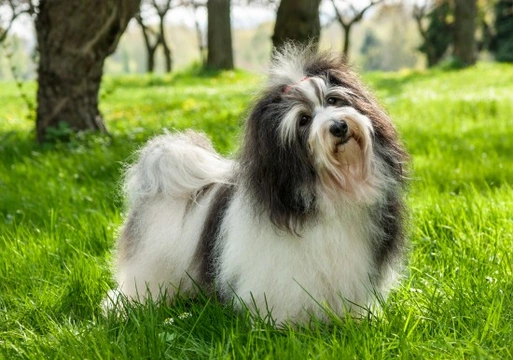Pets
Pets for studWanted petsBreedersAccessories & services
Knowledge hub
Support
Support & safety portal
Caring for a Havanese dog
The Havanese dog is Cuba’s national dog, originating from the crossing of Cuba’s now extinct Blanquito de la Havana, and the also extinct Bichon Tenerife. They are classed as Bichon-type dogs, and are small, compact and cute with long, flowing coats and a very appealing appearance!
Small enough to be comfortable in smaller homes and apartments, they are not quite as popular as the Bichon Frise, but nevertheless make for a great toy dog-sized companion for doting owners, and are renowned for their good natures and being a good fit as all-round family pets.
However, the Havanese dog can fairly be described as relatively high maintenance, due both to their distinctive coats and their demanding personalities, and so they do not make a good choice of pet for everyone.
In this article, we will look at the various care requirements of the Havanese dog, in order to help you to make an informed decision as to whether or not they might be a good pet for you. Read on to learn more.
The Havanese personality
The Havanese dog is a breed that really enjoys the company of people, and likes to be around people at all times. They will often become unhappy or anxious if left alone for long periods of time, and require someone to be with them for the larger part of the day. They are loyal, loving and good natured, and not prone to being snappy or unfriendly. They are also generally tolerant and kind with children of all ages, and love getting involved in family life.
They are sharp, intelligent little dogs that love to play, and are relatively easy to train and manage, providing that you can keep up with them! They are fun dogs that like to spend plenty of time playing and running around, and are highly entertaining to watch! They also tend to be good with other dogs when well socialised, and are not prone to being aggressive or wary of strangers.
As with most small dog breeds, it is vitally important to start training and socialising the Havanese puppy when they are young, and not overlook this vital part of their development just because they are small and cute!
Coat care
One of the main considerations to bear in mind when you are trying to decide if a Havanese suits you or not, is whether you are up to the challenge of caring for their coat!
The Havanese coat is one of the greatest appeals of the breed, being soft, fine, silky and very long, and lovely to stroke! They are a double-coated breed, but unlike most other double coated dogs, both layers of their fur is soft and fine, and slightly wavy. In some cases, the undercoat is incredibly sparse, or not even present at all.
Because the Havanese originates from a hot country, their fine coat provides excellent protection against the heat of the sun, but does not provide them much warmth in cold weather, and so despite the length of the coat, they are prone to feeling the cold.
In terms of caring for the coat, it requires daily brushing and grooming in order to keep it in good condition and prevent knots and matting, which can soon occur if the coat is neglected. The coat is both fast growing and very low shedding, and can soon get into a mess if not cared for.
The Havanese coat is usually left natural and not clipped or trimmed, but they can be clipped, or in some cases, corded; cording the coat turns the hair into a dreadlocked appearance, but this can be difficult to achieve by the first time owner!
If you do not have plenty of time to commit to keeping the Havanese dog’s coat in good condition, they will not be a good choice of pet.
Havanese health
The average longevity of the breed is right at the top of the rankings for small dogs, ranging between 14-16 years. They are considered to be a robust and healthy small breed, but like all pedigree dogs, they may be prone to certain genetically inherited health problems.
Retinal dysplasia, heart disease, liver disease, cataracts, and patellar luxation are the five health conditions that are most likely to occur within the breed due to a genetic predisposition within the breed line.
A good choice of pet?
The Havanese is a good pick for people across all age ranges and from all walks of life, and they are considered to be a good all-rounder within the small dog grouping. They are at home in either small or large dwellings, and make a good pet for both older people and families with children.
However, they do not thrive without a reasonable amount of attention, and will not be happy if they are left alone all day while you are out at work. The coat too is high maintenance and requires daily attention, and these are considerations that you should bear in mind if you are considering buying or adopting a Havanese dog.



